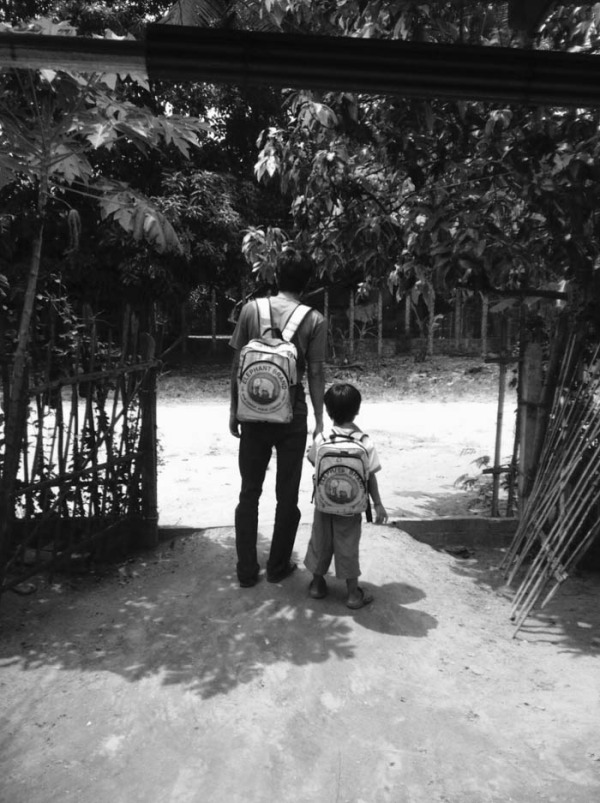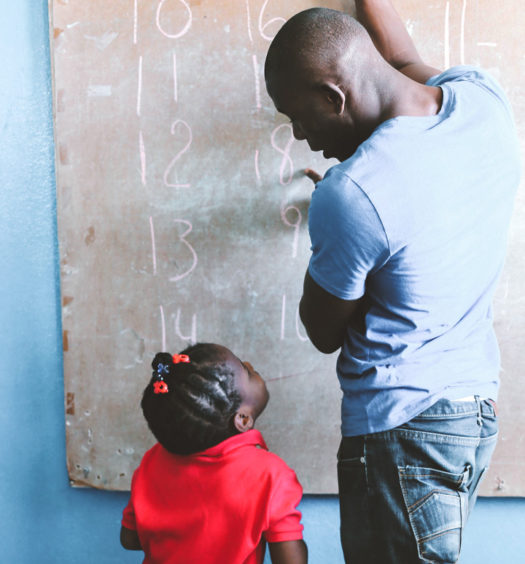Education Doesn’t Only Happen in the Classroom

Editor’s Note: Read the Elephant Branded feature here to learn about their mission to support Education in Africa and Asia.
In my last article, I mentioned the importance of education in determining people’s futures. It’s hard to argue against that. I did, however, focus on the type of education that most of us think of when we hear the word.
When you hear the word education what do you think of? Favorite teachers? Worst subjects? Test tubes and spelling tests? Without a doubt that form of education is hugely important. It enables a better understanding of a huge range of subjects, introduces you to the world of politics (mainly in the playground) and provides you with the skill of looking interested when you’d rather be doing something completely different.
Yet education doesn’t just happen in the classroom. It doesn’t just happen when you’re trying to remember which is x and which is y or who the King of England was in 1066. It happens in the intangible, unrecorded, unwritten and un-memorized moments in the corridors, in the yard and, if you’re lucky, behind the bike sheds. It happens by doing things; many of them outside of the classroom.
Nobody learns how to tie his or her shoelaces from a textbook or how to make friends in the lesson after lunch. These come through other types of learning; real world learning through actions. Although shoelaces may seem unconnected to sub-Saharan Africa, the message is important. We, as people of various ages, gain a huge amount of tacit knowledge through carrying out everyday routines, observing others and practicing everyday skills. School, for most of us, gives us all very obvious examples of this. Learning the art of negotiation when swapping cards, mastering diplomacy when two friends become rivals and learning how to lead when given the captain’s armband for the game against the year above.
Yet it isn’t just school that provides us with this. By giving people the autonomy and opportunity to learn practical skills with guidance and a ready demand, a powerful learning and resource emerges. This resource protects vital income, enables the transfer of knowledge and provides greater security for families and communities. As obvious as this sounds, for people in many cultures, this isn’t something that is readily available as the women of Cambodia highlight. Civil war, reliance on subsistence farming and a weak local economy mean both autonomy and opportunity are both often rarities. In the West, we can give them a solution; simply by changing the way we choose products on shelves and pictures in brochures.
Through empowering individuals rather than machines, we, as consumers, can ensure that people develop the skills to have a meaningful and sustainable way out of poverty. As the old saying goes, give a man a fish and he will go hungry soon afterwards, give a man a rod and he will learn not to be hungry at all.
At Elephant Branded, we encourage communities to create thriving businesses that produce products for people like you. By creating these products, managing the orders, improving the processes and earning a living, we as consumers ensure that they have a more sustainable future. We as a company ensure that we speak to them regularly, offering support and guidance and enabling them to maintain their independence. We do not employ them directly or tell them who they can sell to. We do not tell them how much to charge or constrain them with strict order deadlines. We simply provide them with customers and a market that doesn’t exist locally. With that, we give them an opportunity to determine their own futures whilst providing people like you (and me) with some amazing products.
As we grow, they grow. With that, their skills develop, their learning continues and their independence becomes more and more entrenched. We think that is pretty cool. As I said at the beginning, not all learning begins in the classroom but through doing, empowering and making choices, we can all change something and hopefully, in a small but significant way, improve it.
I’ll tell you more next time about a specific example of what we are doing in Colombia, but I hope this has been of interest.
Many thanks,
Learn. Connect. Act.
Learn more about Elephant Branded
Connect via Facebook and Twitter
From the Editor
At Conscious, we are inspired by remarkable people, and so we set out to tell stories that highlight real human interactions and human dignity. You can read more stories like this when you pick up your copy of Conscious Magazine. Subscribe today via our Conscious Shop and subscribe to Conscious Updates.



